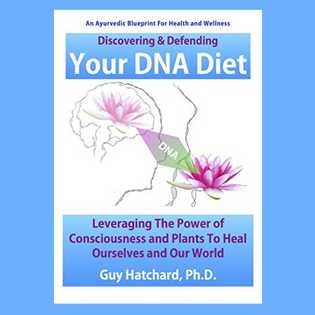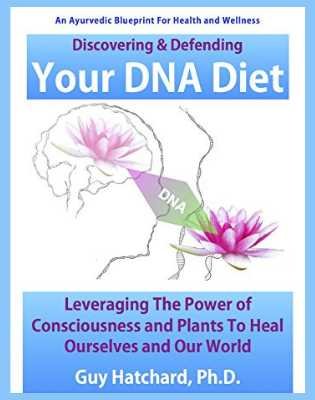The Listener has published an article entitled “NZ spends more on health than most countries – so why is our health system still sick?“. The article follows the case of a woman from Thames who was diagnosed with appendicitis upon presentation to her local ED. She was transferred to Waikato hospital for an operation but had to wait 2 days during which time her appendix burst, a potentially life threatening condition. As a result her recovery took longer and involved more complications and pain. The article explains:
“Waikato Hospital has one of the busiest emergency departments in New Zealand – 84,000 presentations in 2024 – roughly 230 per day. Overcrowding is constant, especially during winter. [In NZ as a whole] more than 300,000 patients with “imminently” or “potentially” life-threatening conditions were not seen within recommended times in the first six months of 2024.“
The article continues:
“But there is a mystery here. If we compare New Zealand with other OECD nations, our health spend as a percentage of GDP is higher than average, and public health spending as a proportion of government spending is one of the highest. We have slightly fewer doctors per head of population than peer nations – but more nurses. And the number of doctors and nurses per capita has risen steadily for 25 years.”
So why is our health system failing? The National led government is blaming Labour policies and the Labour Party is blaming National cost cutting. The authors conclude that neither explanation is persuasive, saying “the delays and overcrowding were present at the end of the last National government in 2017, endured through Labour and are worse today.” It is at this point in the article when a rigorous investigation might have helped the Listener get to the bottom of the problem. They could have asked:
‘How much worse is the problem today and why?’
If they had asked that question they just might have realised that since 2021 there has been a sea change in levels of sickness that is not going away and may even be getting worse. As we reported in our article “It is not unusual” the number of St John Ambulance call outs in August 2025 was higher than it has ever been. Moreover the rate of excess deaths is still 5% higher than it was pre-pandemic.
There is a known ratio between mortality and hospitalisation (see for example Contributions of event rates, pre-hospital deaths, and deaths following hospitalisation to variations in myocardial infarction mortality in 326 districts in England: a spatial analysis of linked hospitalisation and mortality data). It is usual to suppose that high mortality rates are caused by a combination of poor quality of hospital and healthcare services, poverty prevalence and, in the modern era, aging populations, but that is not always the case. The causation can work the other way round. In war time, rates of hospitalisation and death rise because there are more injuries. A similar case applies during disease epidemics, if mortality rises above the long term average it will be accompanied by increased hospitalisation rates and a strain on healthcare services.
A third possibility exists, this occurs when the overall immunity of a population is affected. For example during famine conditions there is not only starvation but also low immunity. Following on from the pandemic and the mass mRNA COVID-19 vaccination program New Zealand is facing a deficit in immunity. This has resulted from biotechnology experimentation which has adversely affected our immunity, contributing to increased healthcare utilisation rates, ED visits and emergency call outs. The trend of increased sickness involves a wide range of health conditions on top of the known seasonal factors and prior trends.
Strangely the Listener fails to mention this obvious factor except for a passing reference to increasing levels of multi-morbidity (more people than ever before are experiencing multiple disease conditions simultaneously). Instead pretending that rising healthcare costs are primarily an inevitable result of mismanagement and rising costs. Experts interviewed by the Listener disagree on the causes and remedies, one suggestion calls for more efficient healthcare managers possibly with the assistance of advanced AI to replace some frontline medical personnel. Another opinion calls for training more doctors and nurses. But it doesn’t take an economist for us to realise that healthcare is already taking up such a significant percentage of our national budget that options are limited, especially because the previous government borrowed $66 billion to fund their pandemic response, money that has not yet been repaid.
Whereas, as we have been reporting, multiple studies show unequivocally that simple low-cost preventive educational healthcare measures involving diet, exercise and meditation can reduce the healthcare burden dramatically. More than at any other time, New Zealand needs a genuine national health debate. Yet it seems that almost everyone in authority and mainstream media is keen to avoid this.
We are being misinformed by those charged with protecting our health
Mostly our newspapers are poking fun at the healthcare debate that is taking place in America and the UK without actually informing us what the issues are, instead labelling public debate as anti-science, whereas the opposite is the case.
Take for example this highly informative presentation by leading cardiologist Dr. Aseem Malhotra which was dismissed by the Times as “unsupported by mainstream clinicians or experts.” When in fact Dr Malhotra is actually a highly credentialed clinician who was presenting critical research findings.
For comprehensive review of Trump’s announcement on the dangers of paracetamol use during pregnancy see here. Contrary to uninformed media rejection of concerns, there are landmark published studies indicating significant risks. Andrea Baccarelli, MD, PhD, the Dean of Faculty of the Harvard School of Public Health who conducted a research review published in August entitled “Evaluation of the evidence on acetaminophen use and neurodevelopmental disorders using the Navigation Guide methodology” has written for example “Patients who need fever or pain reduction during pregnancy should take the lowest effective dose of acetaminophen [the active ingredient in paracetamol and Tylenol], for the shortest possible duration, after consultation with their physician about their individual risk-benefit calculation.” Despite this solid published evidence urging extreme caution, the New Zealand Herald headlined “Experts reject Trump’s ‘baseless’ paracetamol claims quoting Dr. Bryan Betty, a New Zealand GP and Chair of General Practice NZ. Sadly his blanket rejection is all most of the New Zealand public will likely hear on the issue.
New comprehensive reports you may have missed
The Hatchard Report is committed to informing you about health in all its aspects. You may have noticed fewer articles than usual from the Hatchard Report in the last few weeks, that is because we are now publishing our GLOBE on Substack.com. These articles explore deeper principles surrounding biotechnology and challenge myths of safety and effectiveness that are being used to influence government policies and encourage unthinking public acceptance. As a result of this change, you might have missed some key articles. If you haven’t already subscribed to our Substack column you might like to check out our recent posts which examine in detail the ideas underpinning misplaced faith in gene editing safety. They question the biotechnology paradigm:
The Goldilocks Factor in Genetics
The modern age cannot be an age of biotechnology—Quantum mechanics, consciousness and biotechnology
The Long Read: Twenty Reasons to Completely Reject Biotechnology Experimentation Part 1
I believe these are among our best ever articles which present the key issues very clearly. Substack is a platform that enables subscribers to share posts with other members, friends and social media. The content we are posting there replaces our GLOBE website. The Hatchard Report will continue as usual to bring you our perspective on local health and food issues all backed up by scientific references. Issues that our healthcare, biotech and processed food industries appear anxious to bury and ignore. Currently you can subscribe to our Substack without charge.
We Need Your Help
Just a word about our funding. We rely on your support. A big thank you to all of you who do contribute or have done so in the past. However we have had a continuing shortfall over the last four years, as a result we have had to borrow from the bank to keep going. The amounts involved are considerable and the costs of borrowing are becoming unsustainable. If you enjoy our reports, please consider helping us at this time if you are in a position to do so..
Finally a timely reminder, the parliamentary health select committee is due to report its conclusions on the Gene Technology Bill on October 10th. Please register your opposition to biotechnology deregulation by opposing the passage of the Bill. Write to your MP and share our articles with your colleagues and friends.






